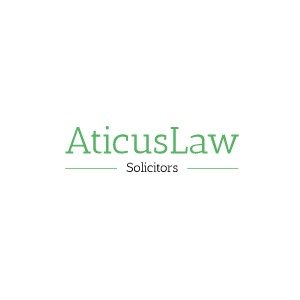Best Bankruptcy & Debt Lawyers in Wilmslow
Share your needs with us, get contacted by law firms.
Free. Takes 2 min.
List of the best lawyers in Wilmslow, United Kingdom
United Kingdom Bankruptcy & Debt Legal Articles
Browse our 1 legal article about Bankruptcy & Debt in United Kingdom written by expert lawyers.
- Debt Collectors in the UK: Stop Harassment and Verify Debt
- - Debt collectors must follow FCA rules. You can set contact limits, insist on writing only, and complain if they ignore this. Aggressive or frequent contact can be harassment under UK law. - Verify every debt before paying. Use a prove-it letter and, for credit agreements, a Consumer Credit Act... Read more →
About Bankruptcy & Debt Law in Wilmslow, United Kingdom
Bankruptcy and Debt Law in Wilmslow, similar to the rest of the UK, is governed by the Insolvency Act 1986 and the Enterprise Act 2002, among other legislation. If a person or a company in Wilmslow cannot repay their debts to creditors, they may opt for bankruptcy as a last resort. This process involves selling off one's non-essential assets to pay creditors and after a specific period, any remaining debts may be written off. On the other hand, debtor or creditor can also initiate formal debt solutions like the Individual Voluntary Arrangement (IVA) or the Company Voluntary Arrangement (CVA).
Why You May Need a Lawyer
Legal advice is critical when dealing with bankruptcy and debt-related processes. It is important to know your rights, obligations, and the implications of your decisions. You might need a lawyer in situations such as filing for bankruptcy, defending bankruptcy petitions, exploring debt recovery options, negotiating arrangements such as IVA or CVA with creditors, and more.
Local Laws Overview
The local laws regarding bankruptcy and debt in Wilmslow follow the same regulations as nationwide. For instance, upon declaring bankruptcy, one's assets - excluding essential household items and tools for work - may be used to pay off the debt. A bankruptcy lasts for 12 months typically, and it would be reflected in the individual's credit rating for six years. Alternatives to bankruptcy such as Debt Relief Orders (DROs), IVAs, and administration orders are also available under the law.
Frequently Asked Questions
What is the process for declaring bankruptcy?
To declare bankruptcy in Wilmslow, you need to apply online with the UK government. A court fee of £680 applies. Any non-essential assets can be used to pay off your debts.
Can all debts be included in the bankruptcy?
Not all debts can be included in a bankruptcy. These usually include court fines, student loans, and some types of taxes.
What is an IVA?
An Individual Voluntary Arrangement (IVA) is a legally binding agreement that allows you to make a formal proposal to your creditors to pay back your debts over a period of time. It needs approval from creditors representing 75% of your debt.
What happens after the bankruptcy order ends?
After the bankruptcy order ends, which is typically after 12 months, most of your remaining debts will be written off. Take note this could negatively affect your credit rating for six years.
Can I run a business while bankrupt?
While bankrupt, you are usually prohibited from managing or controlling a company unless you get permission from the court.
Additional Resources
The Government’s website provides comprehensive information about dealing with debt. The Office of Fair Trading and the Financial Conduct Authority are also regulatory bodies which provide support and guidance. Charitable organizations like Citizens Advice and StepChange also provide free advice and resources on the topic.
Next Steps
If you need legal assistance regarding bankruptcy and debt, your first step should be to consult a legal practitioner who specializes in insolvency laws. They can assess your personal circumstances, provide you advice on the best course of action, and guide you through the procedure if bankruptcy is inevitable. Always remember, it is important to act promptly in such matters to avoid any legal complications.
Lawzana helps you find the best lawyers and law firms in Wilmslow through a curated and pre-screened list of qualified legal professionals. Our platform offers rankings and detailed profiles of attorneys and law firms, allowing you to compare based on practice areas, including Bankruptcy & Debt, experience, and client feedback.
Each profile includes a description of the firm's areas of practice, client reviews, team members and partners, year of establishment, spoken languages, office locations, contact information, social media presence, and any published articles or resources. Most firms on our platform speak English and are experienced in both local and international legal matters.
Get a quote from top-rated law firms in Wilmslow, United Kingdom — quickly, securely, and without unnecessary hassle.
Disclaimer:
The information provided on this page is for general informational purposes only and does not constitute legal advice. While we strive to ensure the accuracy and relevance of the content, legal information may change over time, and interpretations of the law can vary. You should always consult with a qualified legal professional for advice specific to your situation.
We disclaim all liability for actions taken or not taken based on the content of this page. If you believe any information is incorrect or outdated, please contact us, and we will review and update it where appropriate.
Browse bankruptcy & debt law firms by service in Wilmslow, United Kingdom
Wilmslow, United Kingdom Attorneys in related practice areas.








